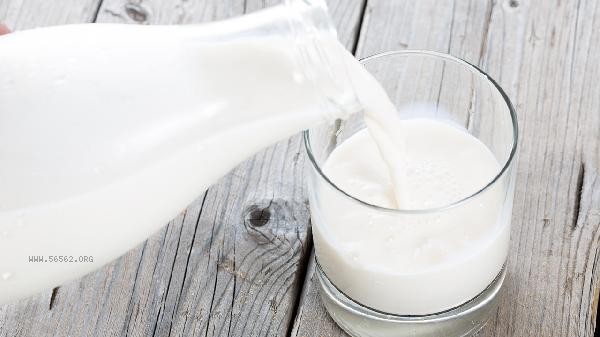Milk can be consumed on an empty stomach, but some individuals may experience gastrointestinal discomfort. Milk contains high-quality nutrients such as protein and calcium, and its nutrient absorption efficiency is higher when consumed on an empty stomach. However, lactose intolerant individuals may experience bloating and diarrhea. The protein and fat in milk can provide sustained energy, and drinking on an empty stomach can help alleviate hunger. Lactose decomposes slowly on an empty stomach, and normal individuals usually do not experience significant discomfort. The calcium in milk is more easily absorbed and utilized in the stomach acid environment, which is beneficial for bone health. Choosing low-temperature sterilized fresh milk can reduce protein denaturation and improve absorption rate. Eating with a small amount of grains can delay gastric emptying time and reduce possible gastrointestinal irritation. People with lactose intolerance who drink milk on an empty stomach are prone to digestive disorders due to a lack of sufficient lactase in the intestine to break down lactose. Drinking on an empty stomach with excessive gastric acid secretion may stimulate the gastric mucosa, leading to acid reflux or discomfort in the stomach. Drinking on an empty stomach during the recovery period of acute gastroenteritis may increase the burden on the intestines. Some people are allergic to milk protein, and drinking on an empty stomach may trigger allergic reactions. People with chronic diarrhea or irritable bowel syndrome should be cautious when drinking on an empty stomach.

It is recommended to adjust the drinking method according to individual constitution. Lactose intolerant individuals can choose lactose free milk or yogurt. If abdominal distension and pain occur after drinking, reduce the amount of alcohol consumed on an empty stomach and seek medical examination if necessary. Daily consumption can be paired with carbohydrates such as bread to ensure nutrient absorption and reduce gastrointestinal irritation. Develop regular eating habits and avoid the impact of long-term fasting on the digestive system. Special populations should develop personalized milk drinking plans under the guidance of nutritionists.










Comments (0)
Leave a Comment
No comments yet
Be the first to share your thoughts!